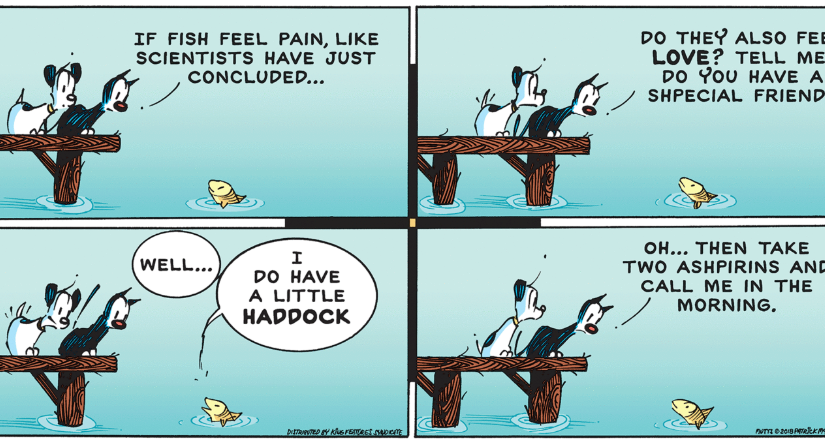I just ran into a comic that is similar to the “like or as” mistake I mentioned the other day. Should the kid in the first panel use “us” or “we”?
He should use “we”! The sentence is easier to get right if you say “…dogs can smell better than we can smell.” It’s the verb he’s comparing, so “we” is a subject.
And here’s another comic with the same mistake. Of course, I don’t really expect kids in pre-K to get this right.
The last sentence in the second panel. It should be “…knows you better than I do.” The way it’s written, it means “…knows you better than they know me.”


